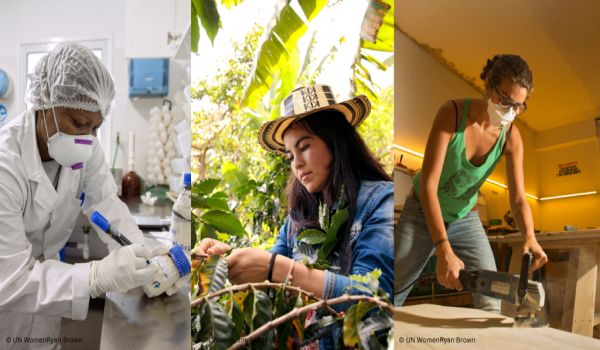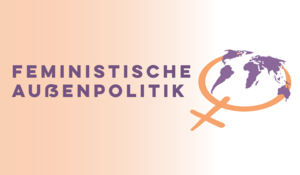The workshop took place on 3 October 2025.
Questioning trade policy from a feminist perspective
In view of the current US customs policy, the issue of international trade has become a new area of conflict. Trade is a key instrument of foreign policy – and often a means of perpetuating colonial power asymmetries.
Trade agreements have a decisive influence on how people around the world are integrated into markets as economic actors; they shape economic, ecological, social and cultural inequalities – both between states and within societies. Racist and gender-specific structures of the international division of labour are usually reproduced in the process.
From a feminist perspective, it is therefore important to critically examine trade agreements: Which economic, political and social rights are threatened or undermined by them? Which gaps in justice are exacerbated?
Since European trade policy falls largely within the remit of the EU, our workshop will focus on current European initiatives:
• Team Europe Initiative – How is the EU shaping its trade and investment strategy towards the African continent, and what feminist criticisms arise from this?
• EU Mercosur Agreement – Why is the agreement once again causing controversy, and what impact does it have on women, marginalised groups and the environment in the countries involved?
Together, we want to analyse, discuss and develop options for action.
About the speakers
Dr Miriam Mona Mukalazi
works at the VIDC in the Africa Politics programme. She holds a doctorate in political science in the field of security policy and has conducted research at the Institute for Peace and Security Studies in Addis Ababa, among other places. Previously, she worked at UN Women Germany and as a consultant for the World Bank, the European Commission and political foundations.
Theresa Kofler
is a trade expert and coordinator of the Anders Handeln platform. Anders Handeln is a civil society alliance of trade unions, environmental NGOs, development NGOs and church organisations working together against neoliberal trade agreements and for fair globalisation.
Mara Elena Zöller
holds a master's degree in European Global Studies with a focus on conflict and development and has worked extensively on the European nexus between migration, development and security policy. In this context, she focused on feminist foreign policy, on which she published a policy brief in collaboration with the VIDC. She currently works as a political education consultant with a focus on gender justice and intersectional climate justice in the context of international development cooperation.



